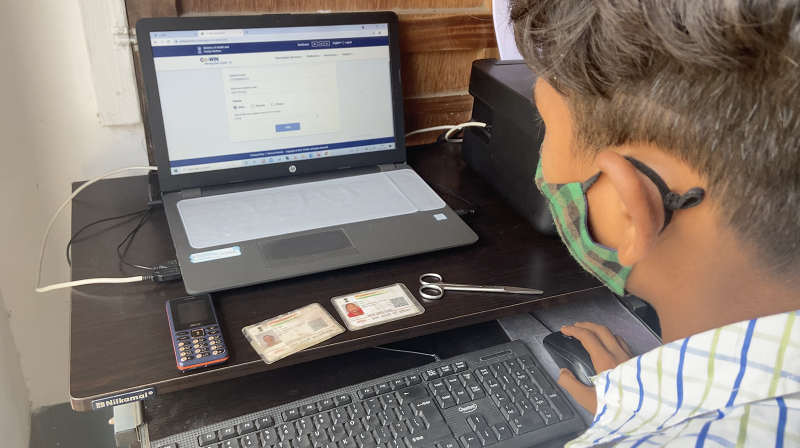
Located about 50 kilometers from Lucknow, Saidanpur is nowhere close to the capital in terms of development and education. The entrance into the village is with the ruins of various havelis that are about 150 to 200 years old. DEF’s digital center is located in one such dilapidated but refurbished ruins of a haveli.
Noori is one of the girls working at the digital center as an IT trainer. When asked about the importance and impact of this digital center she said “during COVID schools have shut down and unfortunately government schools have not shifted online. Moreover many students of private schools that have can’t afford to buy digital devices. At a time like this our work here has not stopped so every day students come here and I take two batches of computer classes apart from that. Students who want to attend online classes but don’t have digital devices come here to attend their classes. Since online education is not perfect they sometimes take help from me and I help them with their assignments.” Noori is right about the exclusion that has come about due to the digital divide. The 2017-18 National Sample Survey reported that only 14.9% rural households had Internet access. DEF’s digital daan campaign is trying to bridge the digital divide through interventions like the one in Saidanpur.
A government school teacher in the neighbouring village gave a deep insight into the directives from the administration. She said “we were told to send the students work through WhatsApp and ask them to complete the work and send pictures but I know all my children (students), almost none of them have a personal mobile phone. Some have parents who have phones but since they also go out to work during the day the children are unable to access phones. I felt so helpless, my children are going without education and most of them come from economically weaker sections so if they don’t get educated they will not have a future. Finally, I asked some of the girls who had phones to share with their classmates and tried to manage that way. But there aren’t enough who have smartphones so we were left with no other option but to school the children at our homes since schools aren’t allowed to officially open.” This being the state of online education in rural India there is a dire need of digital devices that DEF is attempting to provide for children at its 1,000 locations across 25 states in India.








